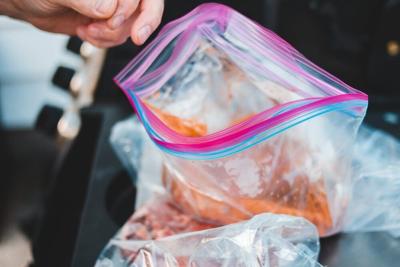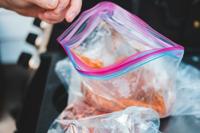
SAN FRANCISCO - A Malibu law firm’s class-action complaint alleging that the makers of Ziploc bag products deceptively market their bags as microwave- and freezer-safe has been dismissed by a federal court.
Attorneys with the Clarkson Law Firm filed the lawsuit against S.C. Johnson & Son in April in the Northern District of California, alleging that several Ziploc products pose risks to human health by potentially releasing microplastics at both high temperatures and in freezing conditions.
The same law firm filed a similar complaint earlier this year against Newell Brands, the manufacturer of Rubbermaid products, in the Central District of California, which covers the Los Angeles area. In court documents filed last month, the company is seeking to have the court dismiss the case.
In the Ziploc case, the plaintiffs argued that because the bags in question are made from polyethylene and polypropylene, they were likely to leach microplastics at extreme temperatures.
“Defendant fails to inform consumers that when the products are heated in a microwave or frozen as intended, directed and instructed for ordinary use, they release microplastics that are then leached into consumers’ food contained therein,” the lawsuit states. “(This omission) is meaningful to consumers as studies show that the ingestion of microplastics poses serious health risks, including potential harm to the digestive tract, immune system and reproductive system.”
An S.C. Johnson spokesperson said the plaintiff’s attorneys never proved a causal link between the use of the Ziploc products and threats to human health.
“The case has been dismissed, and the litigation is concluded,” the spokesperson told the Southern California Record in an email. “As we explained in our motion to dismiss, no data was presented in the lawsuit that demonstrates Ziploc sheds any microplastic. We continue to believe the lawsuit had no merit, and we stand behind the safety of our products.”
The company, however, does acknowledge that microplastics pollution is a global concern.
“... Microplastics have unfortunately become overwhelmingly present in the air we breathe, the food we eat and the water we drink, and they come from many different sources,” the spokesperson said. “That's why we have been working for years to raise public awareness about plastic pollution and push for global plastic regulation.”
Microplastics are plastic fragments that are under 5 millimeters long. In recent years, they have been discovered in human organs, including the brain, and have been linked to DNA damage, cancer and cardiovascular disease, according to the Saiiontz & Kirk P.A. law firm.
The Ziploc lawsuit argued that heating causes the highest number of microplastic pieces to be released from products made from polyethylene and polypropylene.
“Some products release as many as 4.22 million microplastic and 2.11 billion nanoplastic particles from only one square centimeter of plastic area within three minutes of microwave heating,” the lawsuit said. “These microplastics can negatively impact the digestive system, immune system and reproductive system, and pose other serious health risks.”
The label description of the Ziploc bag products as microwave- and freezer-safe was deceptive and represented unlawful advertising, the complaint said.
The plaintiff, Linda Cheslow of Santa Rosa, had sought a declaration that the defendant violated consumer-protection laws, an injunction to stop the company from selling “unlawful products,” a requirement that appropriate warnings be added to product labels, monetary compensation, punitive damages and attorney fees and court costs.
An article in the publication Plastics Todayauthored by chemical engineer John Spevacek argues that such litigation is based on misinterpretations of scientific studies or a failure to acknowledge the limitations of such studies.


